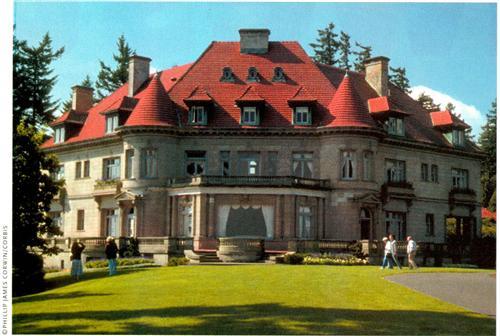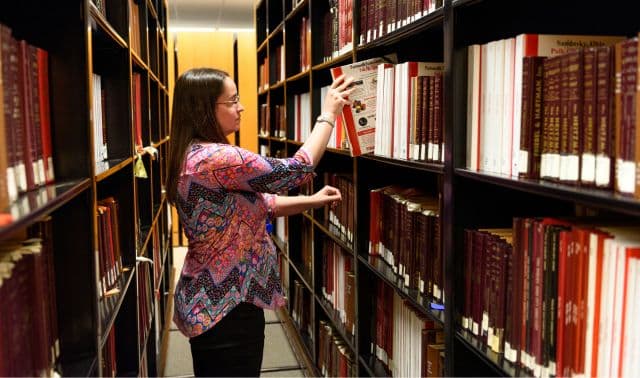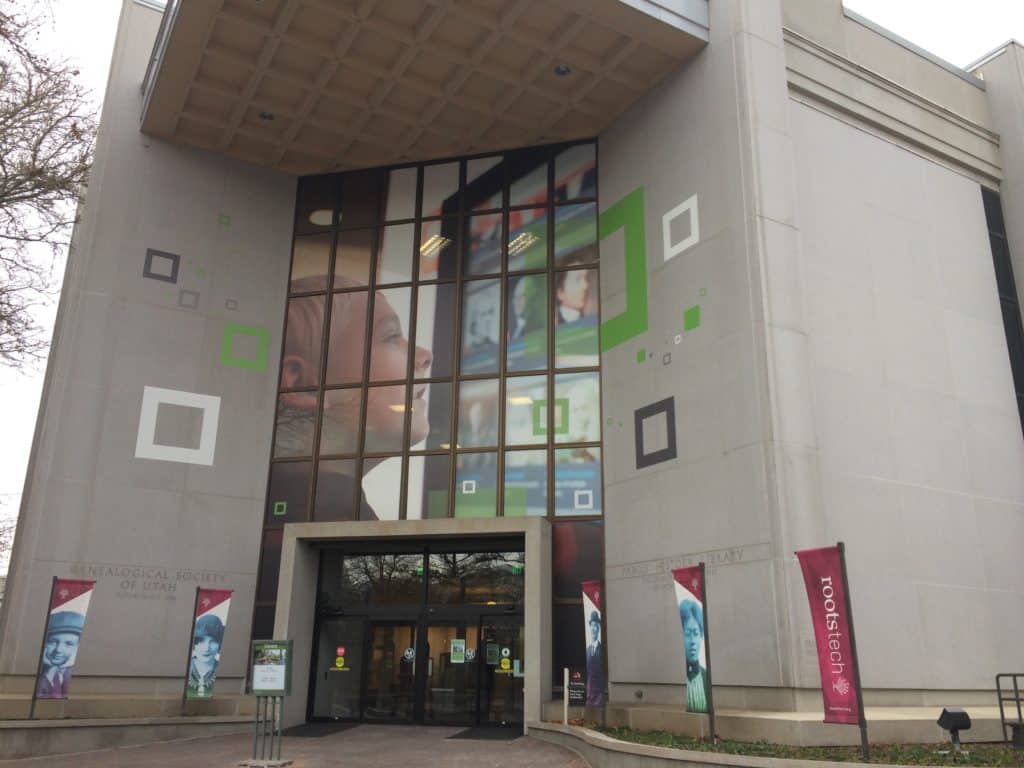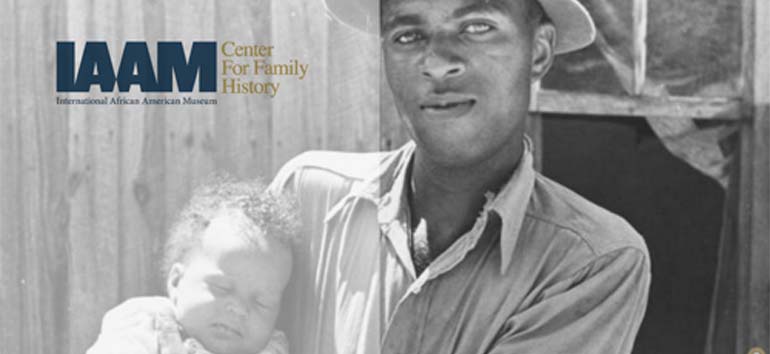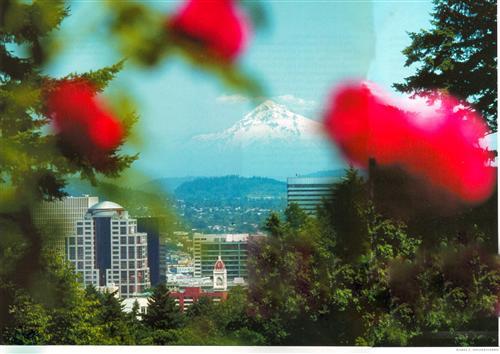 As the last stop for many hardy Oregon Trail pioneers, Portland, Ore., was founded with an adventurous spirit that’s still apparent in its people and places. Today, it’s a hotbed of family history activity and a perfect place to research your own ancestral trails, particularly if your family’s past included a passage to the Pacific Northwest.
As the last stop for many hardy Oregon Trail pioneers, Portland, Ore., was founded with an adventurous spirit that’s still apparent in its people and places. Today, it’s a hotbed of family history activity and a perfect place to research your own ancestral trails, particularly if your family’s past included a passage to the Pacific Northwest.
For a few days this spring, May 16-19, Portland will be the center of the family history universe, as it hosts the annual National Genealogical Society (NGS) conference. (See <www.ngsgenealogy.org> or call 800-473-0060 for complete conference information.) Whether you’re attending the conference or just passing through Portland on vacation this summer, our guide to historical and genealogical attractions can make your visit more valuable. If you plan to do extensive genealogical research in the area, plan your steps using the Oregon Guide to Genealogical Statistics by Connie Lenzen, available from the Genealogical Forum of Oregon and at libraries.
(One special tip if you’re coming for NGS: Bring your umbrella. And a raincoat wouldn’t hurt. Although May is near the end of Portland’s rainy season, you’re likely to see some form of precipitation during your visit. But make like the natives and don’t let a little water stop you!)
A little history
The Oregon History Center Museum is a few minutes’ walk from the city center along a tree-lined street known as the Park Blocks.
The exhibit “Willamette Valley: Visions of Eden” details inhabitants’ use of the area’s rich natural resources and the resulting changes in the landscape. Other exhibits show Portland history, Pacific Northwest maritime history, models of historic vehicles, antique quilts and Native American artifacts. Hours are Tuesday through Saturday 10 a.m.-5 p.m. (Thursday until 8) and Sunday noon-5 p.m. For information call (503) 222-1741 or visit <www.ohs.org>.
Your journey to the end of the Oregon Trail will be much easier than it was for the pioneers: Hop in a car and drive 20 to 30 minutes south of downtown to Oregon City. The End of the Oregon Trail Interpretive Center’s trademark wagon-shaped buildings stand where the Oregon Country’s first elected governor, George Abernathy, allowed newly arrived pioneers to camp and graze their oxen behind his house. Your trail guide leads you safely through the Missouri Provisioner’s Depot, a mixed-media presentation, exhibits such as Pioneer Family of the Month and a trades and crafts store. Call (503) 657-9336, or visit <www.endoftheoregontrail.org> for tour schedules and Oregon Trail information (including pioneer diaries).
Not far from the Interpretive Center is the elegant 1845 home of Dr. John McLoughlin, who served as chief factor for the Hudson’s Bay Company and later mayor of Oregon City. Tours are Tuesdays through Saturdays from 10 a.m.-4 p.m. and Sundays 1- 4 p.m. Call (503) 656-5146 for more information.
In 1914, two pioneers who survived the trek over the Oregon Trail, then fell in love and prospered in their new home, built a beautiful mansion on a hill overlooking Portland and snowcapped Mt. Hood. The pioneers were Henry Pittock, a businessman who turned the weekly Oregonian newspaper into the daily Portlanders still read every morning, and his wife Georgiana, whose penchant for roses earned Portland the nickname “Rose City.” Rescued from demolition in 1964, the Pittock Mansion’s interior and grounds were restored to their original grand condition. It’s open daily noon-4 p.m. Call (503) 8233624 or visit <www.mediaforte.com>.
A little genealogy
Start your search for ancestors at the Genealogical Forum of Oregon Library — with more than 22,000 volumes and thousands of reels of microfilm, it’s one of the largest genealogy collections on the West Coast. Holdings include records from all US states and several foreign countries, but focus on the Northwest region and states that were common starting points for Oregon Trail overlanders. If you’re researching a pioneer, investigate the Early Oregon Settler Files on families who arrived in Oregon prior to 1900, and the Oregon and Washington Donation Land Claim Abstracts, plus a complete set of the Oregon Donation Land Claim files on microfilm. You’ll also find indexes to Oregon marriages (1855-1975), deaths (1903-1998) and divorces (1971-1998), as well as original Multnomah County marriage certificates (1855-1921); all Oregon census records and indexes; Portland (1881-1985) and other Oregon city directories; records on Oregon Civil War veterans; Library Association of Portland Newspaper Index (about 1920-1987); county histories and cemetery books. Strong collections include an extensive CD-ROM collection, published passenger lists and the Daughters of the American Revolution collection. A free shuttle will operate between the Convention Center and the Forum Library beginning at 5:45 p.m. For library hours and other information (including quite a bit about the conference), call (503) 963-1932 or visit <www.gfo.org>.
The Oregon Historical Society (OHS) Library is another treasure trove of genealogical information. Search for pioneer ancestors in the Pioneer Index of recollections gathered during reunions of pioneers’ descendants, or in the Overland Journals of pioneer letters and diaries. The Biographical Index (1840-1920) lists names that appear in Portland and Salem newspaper articles, scrapbooks and county histories. Almost all the sources cited are at the OHS library. A Manuscript Materials file contains letters, diaries, business papers and architectural drawings. Vital records indexes include Portland births (1864-1917), marriages (1906-1924 and 1946-1999), Oregon deaths (1903-1999), Portland deaths (1881-1925), Portland death certificates (1881-1917) and divorces (1946-1999). The library also holds some Native American records kept by federal agencies; cemetery records; federal and state census records on microfilm and in print (including transcriptions for 1860-1900); Grand Army of the Republic applications for headstones; Oregon Donation Land Claims; Catholic Church records; indexes to Catholic mission records spanning the second half of the 19th century; local and regional city directories; and Indian Wars pension papers of veterans of 1847 and 1855 wars with local Native American tribes. You can search for news of your ancestors in the 16,000 rolls of microfilmed newspapers from 100 Oregon cities (1846-present) and 600 rolls from Washington, California, Idaho, Missouri and Hawaii (mostly 19-century titles). Located in the same building as the Oregon History Museum (see page 52), the library is open Wednesday through Saturday 11:30 a.m.-5 p.m. (Thursday until 8 p.m.). Call (503) 306-5240 or visit <www.ohs.org>.
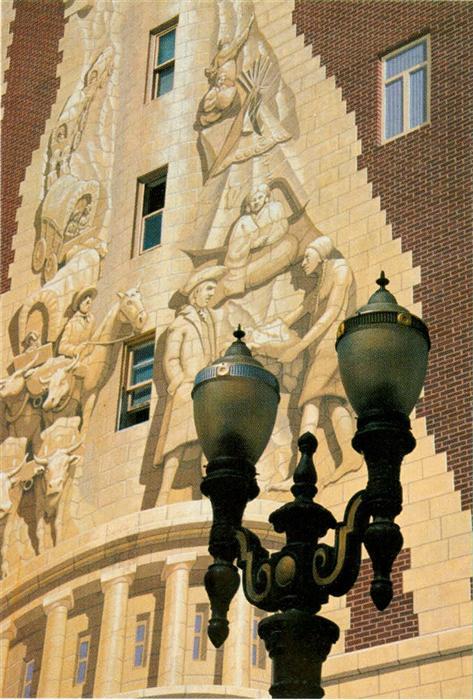
For copies of original birth, marriage and death certificates, order in person, by telephone, fax or online from the Oregon Center for Health Statistics, located in Portland. Birth and death records begin in 1903, marriage records in 1906 and divorce certificates in 1925. Access to birth records less than 100 years old is restricted, as are death certificates and marriage records less than 50 years old; contact the State Registrar, (503) 731-4108. The office is open Monday through Friday 8 a.m.-4:30 p.m. Call (503) 731-4109 or visit <www.ohd.hr.state.or.us>.
The Rose City, without thorns
Here are some suggestions for planning a visit to Portland (all area codes are 503). For more information about the city, consult the Portland Convention and Visitors Association’s Web site <www.pova.org>, or call 1-87-PORTLAND.
Where to Stay
• Holiday Inn Portland-Convention Center
1021 NE Grand Ave. 235-2100
<www.holidayinnport.citysearch.com>
• Best Western Inn at the Convention Center
420 NE Holladay St. 233-6331
• Hawthorne Inn & Suites-Convention Center
431 NE Multnomah St. 233-7933
• Travelodge Convention Center
1506 NE Second Ave. 231-7665
• Radisson Hotel Portland
1441 NE Second Ave. 233-2401
<www.radissonhotel.citysearch.com>

